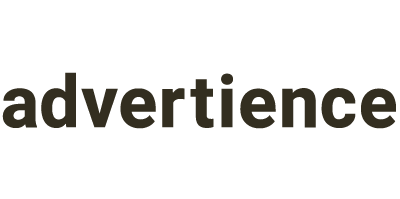Education
Student Recruitment for educational institutions
Digital marketing allows educational institutions to reach a wider audience than traditional marketing methods. With the rise of social media and search engines, it is easier to connect with prospective students who may not have known about your institution otherwise.

Key Factors to Consider in Marketing for Student Target Audiences
Colleges play a pivotal role in elevating the 11 factors that students carefully consider while selecting their secondary education institutions. From the very beginning, Advertience has actively partnered with colleges to drive impactful digital marketing campaigns, effectively reaching and engaging prospective students, while showcasing a proven track record in successful branding and recruitment.
Factors Students Consider When Choosing Educational Institutions
Advertience’s Offers to Educational Institutions
Digital Marketing Strategization
01
Establish Clear Branding:
- Strong and appealing brand image
- Key attributes highlight branding values and aspirations that resonate with the target audience
02
Define Target Audience:
- Demographic and academic profile of the domestic and international students
- Age group, academic interests, geographical location, and career aspirations
03
Research Competitors:
- Analyze the strengths and weaknesses of competing colleges/universities targeting similar domestic students
- Identify what sets the institution apart and develop unique selling points
04
Digital Assets Audit:
- Web Analytics Audit
- Website Audit
- Social Media and Email Marketing Audit
- SEO Audit
Paid Digital Media
Paid search
Paid Search allows colleges to target specific audiences, such as high school students, transfer students, and graduate students, based on their search queries and interests. Advertience helps colleges and universities increase their visibility and attract more qualified applicants, ultimately contributing to the success of their student recruitment efforts.
Paid social
With the increasing use of social media, students are more likely to discover and research colleges on platforms like Facebook, Instagram, and Twitter. Paid social campaigns allow colleges to target specific demographics, such as age, location, interests, and behaviors, and deliver personalized and relevant content to potential students.
Programmatic
Programmatic marketing is an advanced digital marketing strategy that uses data and automation to deliver targeted advertising. For college recruitment, programmatic marketing can be a valuable tool to reach a wider audience and increase applicants. By leveraging data and analytics, colleges can identify potential students and deliver personalized messages to them through programmatic advertising channels such as display ads, social media ads, and video ads.
Remarketing
Remarketing is a valuable strategy for student recruitment, as it allows institutions to target individuals who have shown interest in their programs along with locations. This can be done through various channels such as email, social media, or online advertising. By presenting a tailored message that appeals to their specific interests, colleges can encourage potential students to inquire about information about specific programs and encourage them to get involved in camp tours or career events. It’s important for colleges to segment their audience and personalize their messages, as this increases the likelihood of conversion. Additionally, colleges can leverage data and analytics to understand which channels and messages are most effective in driving applicants and make informed decisions on where to allocate their resources. Overall, a well-executed remarketing strategy can help colleges maximize the impact of their recruitment efforts and drive long-term success.
Email Marketing
Email user journey design and optimization
Designing and optimizing the email user journey in the email marketing process can bring several significant benefits to educational institutions looking to attract new students:
- Personalized Communication
- Segmentation and Targeting
- Building Trust and Credibility
- Nurturing Prospects
Email list segmentation
When it comes to email campaigns for educational institutions aiming to attract new student prospects, segmentation offers several significant benefits:
- Personalization
- Targeted Messaging
- Higher Open and Click Rates
- Improved Conversion Rates
- Reduced Unsubscribes
Social Media
Social media can be a powerful tool for non-profit fundraising as it allows organizations to connect with a wider audience and build a community around their cause. Social media platforms like Facebook, Instagram, Twitter, and LinkedIn provide colleges with the opportunity to share their proposition, programs, and career opportunities with their potential students and engage them in meaningful conversations.

